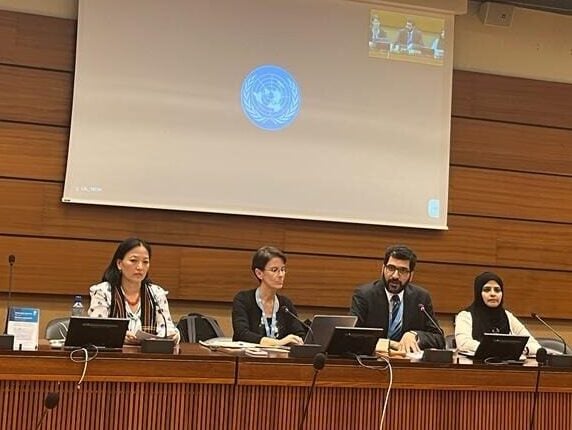
Recent discussions on the Manipur crisis at the side event titled "The Crisis in Manipur and Implications for Human Rights in India," during the 54th Session of the United Nations Human Rights Council, raised many questions and cleared up many uncertainties, especially in regards to the minority indigenous communities of Manipur. The UN Special Rapporteur on Violence Against Women and Girls, the International Religious Freedom Roundtable and North American Manipur Tribal Association (NAMTA) are the organizations represented on this panel. Their reports and speeches are grounded in reality, based on information gathered on direct testimonies and narratives. These are first-hand accounts of atrocities committed against the defenseless minority Kukis, including attacks on women and children, rape, lynching, and more.
What makes the Kukis' participation in the UN conference so crucial? For sure, in light of their lack of influence in national politics and an even smaller voice in the Manipur State Assembly, the minority Kuki population has turned to the United Nations for help. You may be reminded that one of their 10 MLAs was brutally tortured and lynched in broad daylight in the heart of Imphal, sending him to the intensive care unit of a hospital in Delhi. The rest of them have been driven out of the valley. When your cries for help and sympathy go unheeded, you have little alternative except to look for support and assistance from elsewhere.
The majority Meitei, who control the State assembly and have representatives in both the Lok Sabha and the Rajya Sabha, are also seeking support from international organizations, which is ironic given their position of power. The Chief Minister has been their enduring supporter, granting them requests for supplies including ammunition, weapons, police protection, and humanitarian aid. What exactly are they attempting to convey to the world at these summits? They can't even back up their claims with evidence. Since day one, they have lied and pushed narratives that have no factual basis or occurrence, whether in national media or state-sponsored electronic and print media.
Their representative Khuraijam Athouba, the spokesperson of the Coordinating Committee on Manipur Integrity (COCOMI), had nothing to convey except to begin his speech with a lie. His statement that “….they missed informing that Meitei churches have been completely vandalised and razed in Kuki-dominated areas in Churachandpur right on the first day (of the violence) before violence broke out in Imphal…we Meiteis in Manipur are not the majority… We represent around 8.5 lakh of the (state’s) population. And the Christians in Manipur are around 12 lakh. They comprise more than 53-54 per cent…” is, in fact, putting into question the veracity of reports compiled by non-governmental organizations with expert knowledge of the situation in Manipur, such as the United Nations as well as governmental reports such as Census of India. It's a smack in the face to him and the Meitei people. They cannot continue to lie and fabricate facts in a global forum as they do in their controlled television talk shows and news media.
The Kukis have been permanently scarred by the pain, relocation, and loss of life caused by the ethnic cleansing in Manipur. The need for minority representation like the Kukis in the United Nations (UN) is not just a matter of fairness but a crucial imperative. This is because Kukis, being a politically powerless minority, cannot effectively advocate for themselves within their own country. To amplify their voices UN representation offers them a platform to share their experiences, concerns, and demands directly with the international community. It provides an avenue for advocating their human rights, including violence against women, children and their right to life and security. It is also a forum that provides them to seek justice for crimes committed against them including rape. Reaching out to the global forums is not a luxury but a necessity, as it empowers them to advocate for their rights and demand justice. This event should be seen as a positive development, bringing us closer to finally giving the Kukis the justice they've been denied for so long.

Thingkho Le Malcha (TLM) is a traditional method of communication used to send out messages across the Kuki hills during the Anglo-Kuki War,1917-1919... more

If you would like to received a free softcopy of Thingkho le Malcha, you can follow our Whatsapp and Telegram by clicking the below links.
For any other media related you can contact us using below email